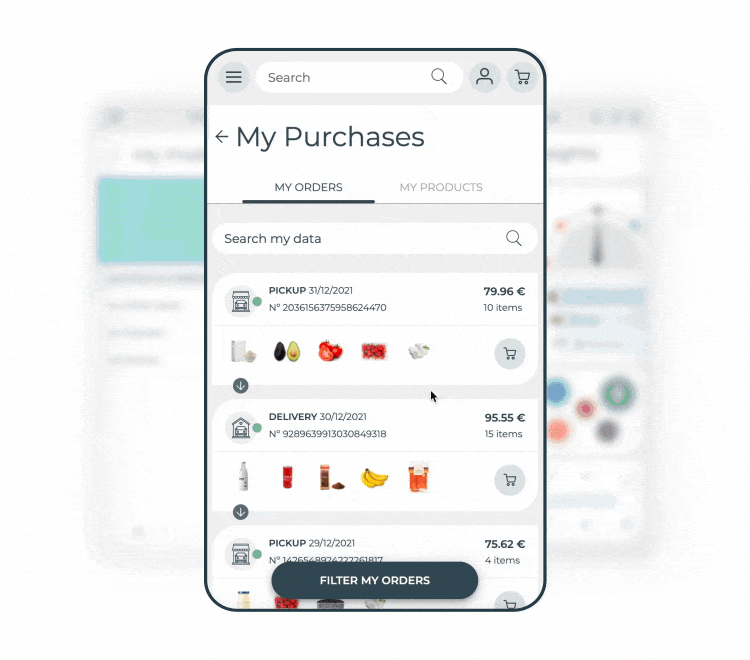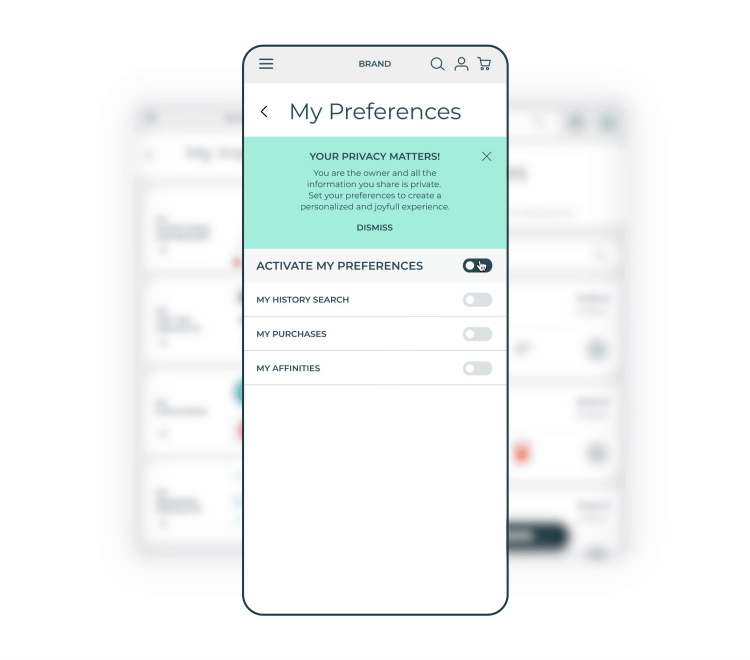Embracing the Winds of Change
Embracing the Winds of Change
Let’s be UX pioneers creating privacy-first experiences
Technology is constantly evolving. A fast-growing, living being demanding more and more attention. As product designers, we should always be on alert for opportunities and pitfalls in these winds of change.
At Empathy.co, we are hunters of progress and innovation. All signs in the world of commerce point to a significant change now more than ever. Companies are waking up to the fundamental truth that users must be treated as the real humans they are, not data points to be profited from. Users must be the owners of their online experience, with complete control over their personal data. A core value that has been at the heart of Empathy from the beginning.
For too long, commerce has dehumanised the shopper. This has to change. In the same way we are concerned with the health of our physical environment, we must protect the digital one too. People want to understand the origins of the products they consume, from organic food to recycled materials. The same can be said for how their data is being used. And taking care of our digital environment means making data consent transparent and understandable for everyone.

It’s easy to spot one of the most significant sticking points in the digital world: some brands make unethical use of customer data. Approximately 45% of emails sent to people are spam, abusive promotions lacking a clear trace of the origin to put a stop to it. If we transfer this behaviour to the real world, these brands are nullifying users: building frustration, distrust and an ultimate rejection of the brand. Of course, it’s anything but positive for an effective marketing strategy.
How can we address this situation to reach a ‘win-win’ in product design? At Empathy, we have been studying possible solutions for some time. Although we are continuously researching the journey of connecting brands with users through products, we have some certainties.
Tracking individuals is never an option.
Shoppers must be in control of their own data. They decide if and when to share preferences, habits and needs, always with their prior consent and certainty that they have clearly understood what sharing information with a brand implies. No small print and unintelligible clauses.
Consent should be part of the Search experience. Today when you enter a site, the first interaction is a requirement to give consent. Why is that? Why not look around? And if you like what you see and trust the brand, you can start to give consent. This could be a clear, step-by-step process. No one asks you who you are and other personal questions the moment you go into a store. Shouldn’t shopping online work more naturally too, where users feel freer in their decision to share data?
At Empathy, we have been working on Purchase History for a long time. Together with Search, it allows us to understand the interests of each user: the frequency of purchase, the preferred categories, the type of orders, etc. All while respecting customer privacy by using no PII.

The data is not the problem.
It’s the way brands collect and capitalise on that data. What would happen if data were used at the shopper’s service instead of at the service of brands? We could provide people with a lot of helpful information to make their lives easier by offering them new and surprising experiences. Imagine data visualisations on diets, expenses, product sustainability, customised grocery lists, functionalities to recommend clothes based on styles in retail…The possibilities are endless. Let’s use data to generate valuable insights and gain users’ trust.

The person is the data owner.
Perhaps some brands are concerned about this change in data processing and are suspicious of this model breaking from the norm. But there are plenty of benefits for brands too. How so? Keep reading.
Privacy-first designs allow brands to rebuild trust with customers. The user is the one who explicitly decides (without doubts about what it implies) what level of personalisation they want in their experience. A user who explicitly states they are not interested in personalised promotions will trust the brand to connect them to interesting products without additional data. Ethically creating experiences means giving people clear control from the start.

The truth is the commerce industry still has a ways to go to implement this type of transparent experience. But it is the most logical and ethical way to restore trust for users. Brands should already feel the winds of change and take steps towards humanisation. More and more evidence every day supports privacy-first solutions. And although any change implies a risk, that’s what innovation and progress are, right? Join me, and let’s be pioneers for privacy!











